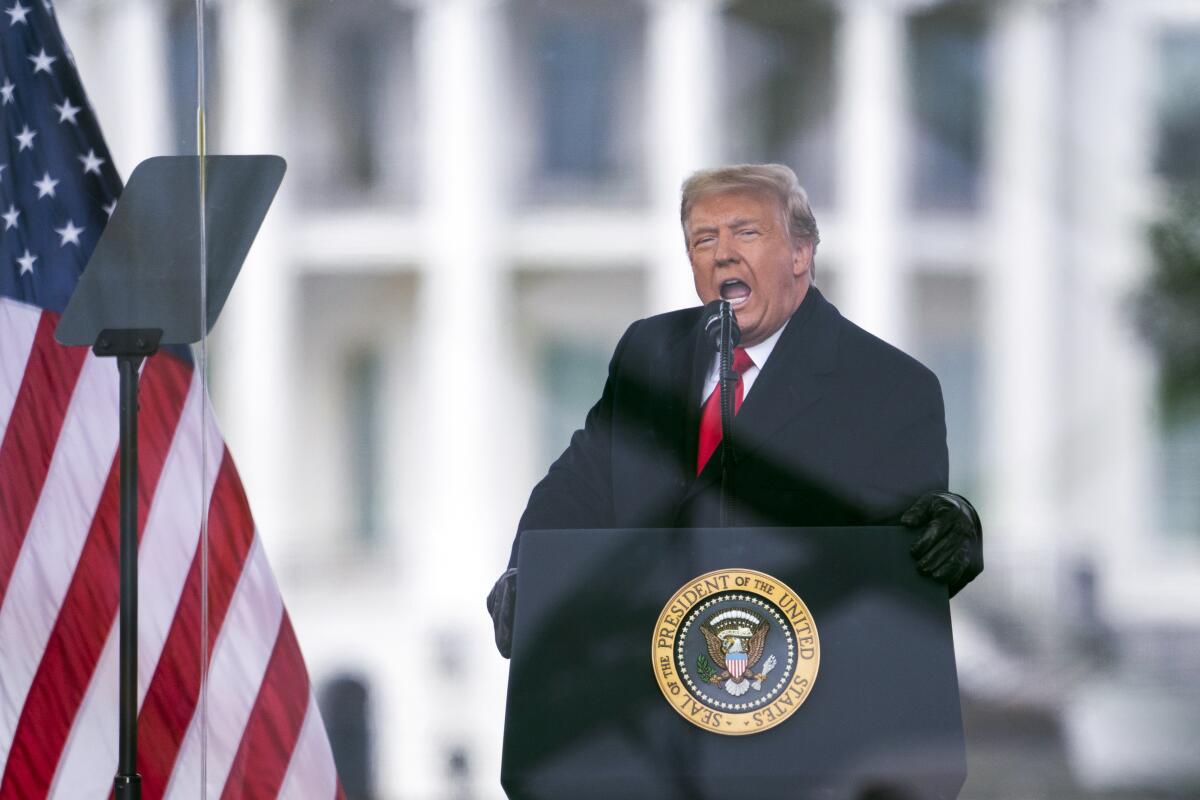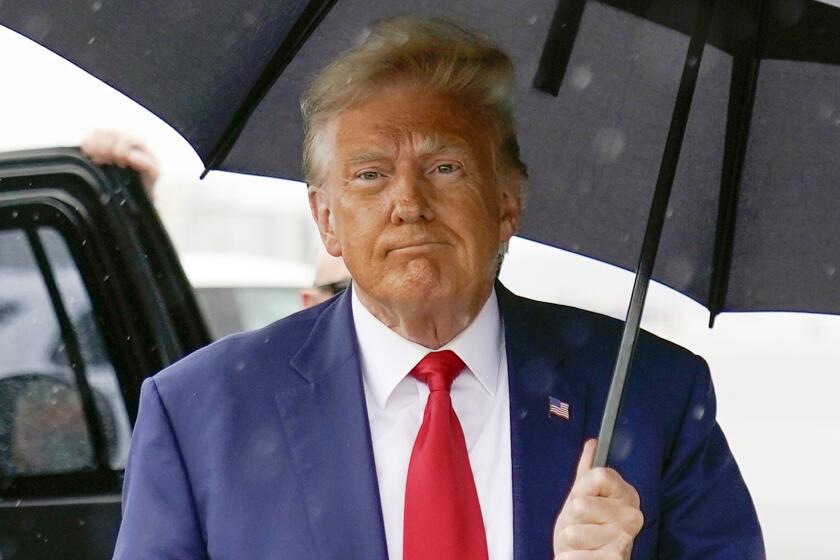Lawsuit argues Trump disqualified from appearing on California ballot

- Share via
A Venice attorney filed a federal lawsuit Saturday to bar Donald Trump from California’s 2024 presidential primary election ballot, arguing that the former president is constitutionally disqualified because of his role in the Jan. 6, 2021, insurrection at the U.S. Capitol.
The lawsuit, one of several expected to be filed in states nationwide, argued that Trump is barred from running because the 14th Amendment states that no one can hold office who has previously taken an oath of office to support the Constitution and then “engaged in insurrection or rebellion” or gave aid to those who did.
The language in the Constitution “speaks for itself,” said Stephen Yagman, a civil-rights attorney who filed the lawsuit on behalf of a California voter, identified only as A.W. Clark.
“There is only one issue that would need to be litigated potentially and that issue is did Trump engage in insurrection or rebellion,” Yagman said. “I think the answer to that question for anyone who has eyesight is that he did.”
The colorful, once-prominent lawyer was disbarred and served 29 months in federal prison after being convicted in 2007 for tax evasion, bankruptcy fraud and money laundering. Yagman’s law license was later reinstated.
The lawsuit was filed against Secretary of State Shirley Weber, who oversees California elections, in the U.S. District Court in Los Angeles.
The Trump campaign criticized it as a baseless lawsuit instigated by the former president’s political enemies, and compared it to the criminal indictments that have been filed against Trump.
“Joe Biden, Democrats and Never Trumpers are scared to death because they see polls showing President Trump winning in the general election,” said Trump campaign spokesman Steven Cheung. “The people who are pursuing this absurd conspiracy theory and political attack on President Trump are stretching the law beyond recognition much like the political prosecutors in New York, Georgia and D.C. There is no legal basis for this effort except in the minds of those who are pushing it.”
A spokesman for Weber did not respond to a request for comment.
Similar lawsuits are expected to be filed in states across the nation before the 2024 primaries start. Citizens for Responsibility and Ethics in Washington filed legal action last week to bar Trump from the ballot in Colorado. A Florida judge appointed by President Obama dismissed a similar effort in Florida last month, arguing that the plaintiffs lacked standing but not weighing in on the constitutional issue.
Debate over the constitutional provision that disqualifies people who have ‘engaged in insurrection or rebellion’ has percolated in legal circles. Later this year, it may be dominating headlines.
The 14th Amendment, best known for its guarantees of due process and equal rights, was added to the Constitution three years after the end of the Civil War. The prohibition on those who had taken an oath to support the Constitution but then engaged in insurrection or rebellion was aimed at former backers of the Confederacy.
Two conservative legal scholars recently wrote that Trump’s behavior after losing the 2020 presidential election disqualifies him from office because of this amendment.
However, other experts argue that the case is not that clean-cut.
“It is not a fait accompli. These are rough cases,” said Jessica Levinson, an election law professor at Loyola Law School.
Among the potential problems are the fact that the amendment does not specifically mention the presidency whereas other parts of the Constitution do, the question of who has the power to enforce it and, more broadly, what qualifies as incitement and an insurrection, she said.
“I think there are so many words that have not been defined in modern usage and so many questions about who has the power to enforce this provision,” Levinson said. “Even though you can look at what the president did and say this looks like insurrection and I don’t think he’s fit for office, that does not mean you’re going to get a favorable ruling on the 14th Amendment.”
More to Read
Get the L.A. Times Politics newsletter
Deeply reported insights into legislation, politics and policy from Sacramento, Washington and beyond. In your inbox three times per week.
You may occasionally receive promotional content from the Los Angeles Times.












